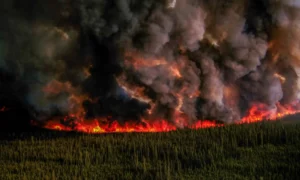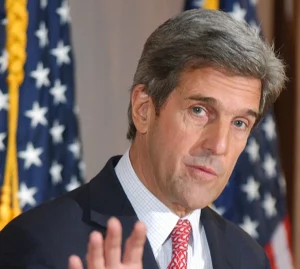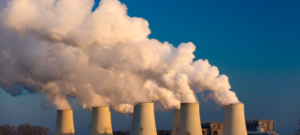Multiple social media reports claim that trees do not have any effect on mitigating climate change.
Citing carbon experts, the reports claim that afforestation “does not make sense” in the battle against climate change.
A report by Dezeen said it would take 100 years of existence for a forest to serve as a carbon store to help fight climate change.
“So you plant your saplings and then you have to maintain the forest for 100 years. That’s multiple generations of people,” the report quoted a carbon expert.
“How many companies last 100 years these days? How on earth is anyone going to afford to maintain that forest, hiring the team of people you need to do that? It doesn’t make any sense.”
DOES AFFORESTATION AFFECT CLIMATE CHANGE?
Afforestation is the process of planting trees in an area that previously had no tree cover, thereby creating a forest in the region. A large body of evidence shows that this simple action helps in fighting climate change around the world.
Recent research by a group of respected scientists has shown that planting trees has a “mind-blowing” effect on the climate crisis the world is presently facing.
Tom Crowther, a professor at the Swiss university, ETH Zürich, who led the research, said “new quantitative evaluation shows forest restoration isn’t just one of our climate change solutions, it is overwhelmingly the top one”.
“What blows my mind is the scale. I thought restoration would be in the top 10, but it is overwhelmingly more powerful than all of the other climate change solutions proposed.”
Crowther told the UK Guardian that afforestation is “vital to reverse the current trends of rising greenhouse gas emissions from fossil fuel burning”.
Basic science also supports the argument that trees reduce carbon in the atmosphere; humans breathe in oxygen and exhale carbon dioxide, while trees take in carbon dioxide, reducing the carbon present in the atmosphere. Hence, the more trees available in a geographical space, the more carbon can be taken out of that system.
TREE SIZE MATTERS IN CLIMATE CRISIS
Multiple research also suggests that the size of trees determines how much carbon they can take out of the ecosystem. Research led by Nathan Stephenson of the US geological survey, western ecological research center, found that “large, old trees do not act simply as senescent carbon reservoirs, but actively fix large amounts of carbon compared to smaller trees”.
Citing the Food and Agricultural Organisation (FAO), the International Monetary Fund (IMF) said in a recent policy paper that an additional 6 million hectares of deforestation occur each year globally, with most of the gross changes occurring in the tropics.
The fund added that “mature” tropical forests contain a large stock of carbon per hectare (300 to 400 tonnes of CO2 per hectare). Further buttressing the argument that trees help store up tonnes of carbon emissions, which could otherwise exacerbate the existing climate crisis.
While bigger trees accumulate more carbon than smaller ones, trees generally help reduce carbon emissions.
BEYOND CARBON DIOXIDE
Trees do not only act as stores for carbon emissions, they also serve other purposes in defying the climate crisis. They have been repeatedly proven to help reduce flooding, and scientists recommend them as a means to roll back the impact of flooding in multiple parts of the globe.
According to Woodland Trust, which has a lot of research and experience in tackling the climate crisis, “trees, shrubs and deadwood along riverbanks and on floodplains act as a drag on flood waters, holding back water and slowing the flow at times of flooding”.
Trees also act as canopy cover, which reduces rain speed and the adverse effect of excessive rainfall.
VERDICT
The claim that trees do not make sense in the battle against climate change is misleading. While different trees have varying effects on carbon storage, trees generally help in solving some of the challenges posed by the climate crisis.
This fact check was produced by TheCable with support from Code for Africa’s PesaCheck, International Fact-Checking Network, and African Fact Checking Alliance network.








